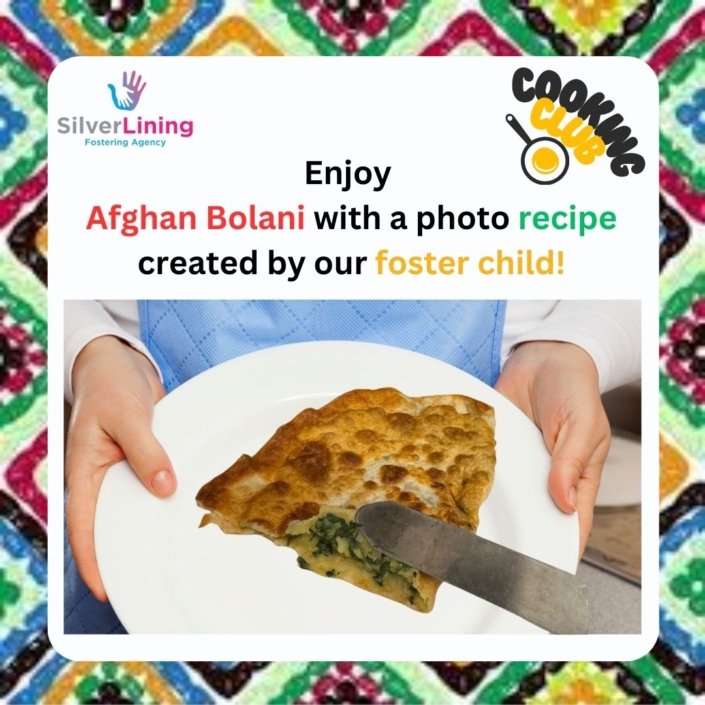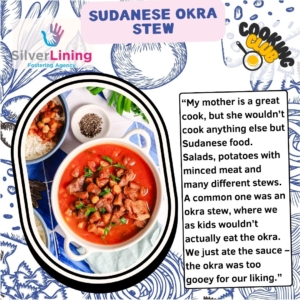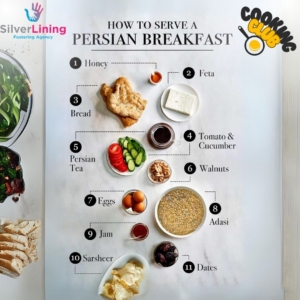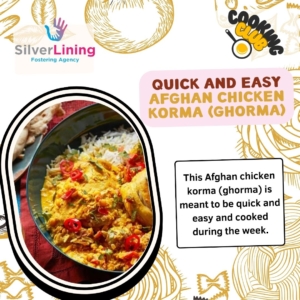Favourite Recipes Cooked by Our Foster Children
Recipes from our foster families
| Rugag
Rugag is a cornflake like Sudanese cereal
– 2 cups plain flour Let’s get cooking. Here’s how you can make Rugag: Instructions: 1. Prepare the Batter: – In a large mixing bowl, combine the plain flour, milk powder, sugar, custard powder, cornstarch, baking powder, and salt. Mix well. – Add the vanilla extract to the dry mixture. – Gradually add water to the dry ingredients, stirring continuously to avoid lumps. You want to achieve a smooth, thin batter. 2. Heat the Pan: – Preheat a non-stick pan or griddle over medium heat. Lightly grease the pan with a small amount of oil or butter. 3. Cook the Rugag: – Pour a ladleful of the batter onto the preheated pan. Quickly spread the batter in a circular motion to make a thin, even layer. – Cook for about 1-2 minutes, or until the edges start to lift and the bottom turns a light golden brown. – Flip the Rugag and cook for another 1-2 minutes on the other side. 4. Repeat: – Repeat the process with the remaining batter, ensuring to lightly grease the pan as needed to prevent sticking. 5. Serve: – Once all the Rugag are cooked, let them cool slightly. They should have a crispy texture similar to cornflakes. Tips: – Consistency: If your batter is too thick, add a little more water. If it’s too thin, add a bit more flour. – Spreading: Use the back of a ladle to spread the batter thinly and evenly for a crispier texture. – Storage: Store any leftover Rugag in an airtight container to keep them crisp. Enjoy your homemade Rugag! |







